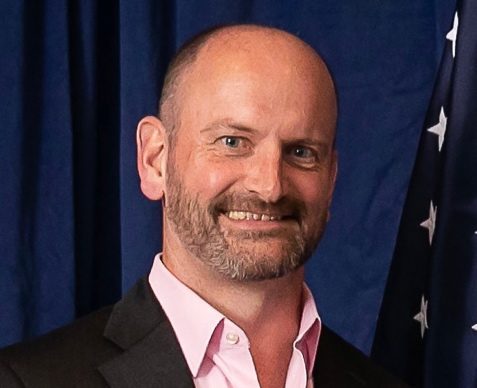
- Hunter Estes says when Mississippi families can vote with their feet, or with their wallets, education becomes a market of ideas, not centralized government control.
I recently saw a clip from New Jersey’s gubernatorial debate. Mikie Sherill, one of the candidates, admonished her opponent because he had cited Mississippi as a model for New Jersey schools. Sherill dismissed Mississippi as having “some of the worst schools in the nation.”
Now, Ms. Sherill may have been correct…thirty years ago. Unfortunately, Ms. Sherill and some others seem to have missed the news. Mississippi has shot like a rocket up education rankings and has quickly become a competitor to New Jersey and other states.
But the Mississippi Miracle was no accident. It was the direct result of tangible common-sense policies. And it was built on Mississippi’s willingness to be an education innovator rather than settle for the status quo.
However, it’s worth remembering that the race isn’t over. No whistle has been blown. We’ve caught up and overtaken many of our competitor states, but they’re still trying to improve and retake their previous positions in this long marathon.
Recognizing this, we can’t take our foot off the gas. We should continue to lean into our state’s role as an education innovator, and we have a real opportunity to do exactly that through policies that empower parents and offer more education opportunities this legislative session.
First, we should recognize that parents and students know best how to engage in meaningful education opportunities that are best for them. We should embrace flexibility. Whether it be homeschooling, virtual learning, vouchers, school choice, tutors, coaches, or traditional public school, it’s time to make Mississippi’s education system more customizable to the needs of individual families.
The educational needs of the single-parent household in Natchez are incredibly different from those of the family of ten with a special needs child in Tupelo. So why settle for a bloated government system that treats them the exact same?
Families deserve to be the ones who make these decisions for themselves. They shouldn’t be forced on them by a monolith or a bureaucrat more focused on preserving the status quo than the students they are supposed to serve.
There are those who have become so wedded to brick-and-mortar schools that they see them as an end in and of themselves. They seem to forget that the point of an education system is not to preserve the existence and funding of a building. The point of an education system is to build up a state’s future citizens, educate them, and instill in them a lifelong hunger for learning.
Further, I’ve seen some suggest that empowering parents and giving them the freedom to choose the education options that are best for their children would hurt certain schools. If that is true, what is really being admitted, shockingly, is that that school is failing its students. In fact, these individuals are saying that those schools are failing so badly that, if given the opportunity, the parents and students currently there would immediately flee for greener pastures.
Mississippians understand competition well. We embrace economic and athletic competition and recognize that the drive to succeed and compete with one’s colleagues and rivals makes one better and forces improvement. It’s long past time that we embrace the same spirit of competition for our schools.
The fact is that when Mississippi families can vote with their feet, or with their wallets, education becomes a market of ideas, not centralized government control. These dollars do not belong to one district, principal, administrator, or school. These dollars should follow the student and his or her educational decisions.
Innovation comes from choice. Mississippi is a perfect example of that. When the nation abandoned longstanding literacy models and reading scores plummeted, our state took the bold step to return to tradition and embrace the basics. Our commitment to the “science of literacy” has paid off, and our current success is proof of that.
Our story has proven to be a national example of the strengths of the federalist system. The nation was failing, but one state stepped up and found success. Now, other states have followed. In fact, over 30 states have followed Mississippi’s lead in instituting similar education reforms.
We should empower the same type of federalistic mindset on the local level. Encourage hybrid learning, public schools, private schools, charter schools, virtual schools, and other methods. Empower principals and districts with greater flexibility. The best way to find future strategies for success is to actually allow the possibility for innovation. Mississippi did that for the nation. Our small towns and rural areas require schooling models that adapt to unique environments, not one-size-fits-all standards, so let’s embrace that and make it a feature of our system.
Choice enables that. Our legislative policies should embrace those choices as well. Let’s lead the nation in creative, community-based education that matches Mississippi’s on-the-ground needs and diverse realities.
Mississippi’s story is now the envy of education reformers nationwide. But the “Mississippi Miracle” wasn’t magic, it was mastery. It was the mastery of reading, the mastery of teaching, and the mastery of believing that excellence belongs to everyone, not just those born somewhere else. Beyond test scores, we’ve proven that background isn’t destiny, that poverty isn’t an excuse, and that common-sense conservative leadership can transform lives.
Now we must zealously guard that success. That means rejecting complacency and continuing to innovate with courage. Other states are already studying us. They want to copy our homework. The worst thing we could do is to stop innovating.
If we can keep that mindset and back it up with policies that reward innovation, empower families, and trust our teachers, then Mississippi won’t just be the comeback story of American education, but the future of it.









